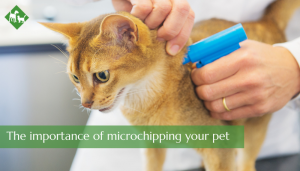10 Top Tips to keep your pets healthy in Summer
Now that summer is in full swing and we are spending more time outdoors we have some timely advice to keep your pets in top shape
1. Stock up on Creepy Crawly treatment
 Summer is often the time that parasites are at their worst. Not only do parasites cause skin irritation but they often carry diseases. Regular treatment with the right product should keep things under control. Remember preventative care is an important part of your pet and their well-being. Follow our tips below to keep your furry friend happy and parasite free.
Summer is often the time that parasites are at their worst. Not only do parasites cause skin irritation but they often carry diseases. Regular treatment with the right product should keep things under control. Remember preventative care is an important part of your pet and their well-being. Follow our tips below to keep your furry friend happy and parasite free.
Fleas
It’s always good to check your pet’s fur frequently for any signs of fleas or flea dirt.
These blood sucking parasites can easily be treated with monthly spot-on applications like Advocate and Stronghold for cats, Advocate for dogs and household sprays for the home. There is also a new flea and tick collar called Seresto that is very good and lasts for six months. We do not recommend most pet shop flea treatments as often they are not effective and can be toxic.
Ticks
Be careful of long grassy areas in particular near woodlands whilst you’re out for a lovely stroll with your pet. Ticks lie in wait in vegetation and attach rather easily to the fur of dogs and cats as they brush past.
If you suspect that your pet has a tick then drop into the surgery and pick up a tick remover device – this is easy to use and is very effective. Alternatively, bring your pet in for an appointment and we can take it off for you. If your pet is getting recurrent tick problems then a preventative treatment such as a Seresto collar or Frontline will be needed.
Fox Mange
Fox mange can be transmitted to dogs and is incredibly itchy and can cause hair loss too. We have a large fox population in South London however fox mange can be easily prevented with monthly Advocate application.
Lungworm
This is a very serious disease in dogs and can cause coughing, pneumonia, bleeding, strokes, vomiting, diarrhoea or even death! Due to the serious nature of this parasite a regular preventative treatment is strongly recommended.
It is spread by foxes and slugs and snails – all of which are very common in South London!
Regular Advocate spot on treatment is the only realistic preventative treatment and as it also treats fleas, mange, some worms and ear mites. It is therefore strongly advisable for all dogs.
For more information on being lungworm aware.
2. Ensure your pet is microchipped
 What would happen if your pet went missing? We all know how much our pets mean to us, and the last thing we want is for you to be in a situation where they are lost, or even stolen. We want to help re-unite with your pets as quickly as possible and keep them all safe and sound. Microchips are also needed for pet travel and are compulsory in dogs and will be compulsory for cats next year.
What would happen if your pet went missing? We all know how much our pets mean to us, and the last thing we want is for you to be in a situation where they are lost, or even stolen. We want to help re-unite with your pets as quickly as possible and keep them all safe and sound. Microchips are also needed for pet travel and are compulsory in dogs and will be compulsory for cats next year.
3. Be careful of the heat
Animals, like us, can also suffer from overdoing the sun and getting too hot. The pets we need to worry about here are:
- Cats with white ears – the UV radiation from the sun can cause cancers to the ears and also the nose. If you have a cat with white ears or a pink nose then limit the sun exposure and possibly also apply special cat high factor sunscreen to their ears.
- Brachycephalic dogs (short nosed dogs eg boxers, pugs etc) or dogs with respiratory problems – remember that dogs have limited ability to sweat so they rely on panting to lose heat so these dogs can really struggle in the heat so taking them out for walks early in the morning or late at night is advisable.
- Older or sick animals (especially ones with kidney disease or diabetes) – these guys can get dehydrated quicker so always have fresh water available and call the vets early if they seem sick as dehydration can set in quickly
- Whatever you do don’t leave dogs unattended in any vehicle!! Even if you have a window open, the humidity and heat can rise to such dangerous temperatures in a very short space of time. Lots of dogs die every year like this.
Heat Stroke is thankfully quite rare although we do sometimes see dogs that suffer heatstroke. If you feel that your dog has overdone it and has collapsed in the heat then this is an emergency so come to the surgery immediately.
4. Check your pet for grass seeds/ grass blades
One of the natural dangers especially in the warmer months is grass seeds which can play havoc with your furry pals if left untreated. These spiteful little seeds are so sharp they can penetrate the skin and then continue to move underneath the skin, ending up almost anywhere! Dogs seem to suffer more with grass-seed darts penetrating their skin and orifices although cats can occasionally suffer from them too.
How to stay on top of potential grass seed problems:
• Check between the toes for grass seeds after your cat/dog has been outside and, if possible, keep the hair clipped short in this area.
• Regularly check other likely places for grass seeds such as in the ears and under the tail, and pay special attention if your pet is shaking his head or nibbling at any particular area of the body.
• If you suspect a grass seed then come in to the vets early as you can as they get harder to deal with the longer they are left untreated
Cats do not tend to suffer from grass seeds very often however they strangely often get blades of grass stuck behind their soft palates at the back of their mouths. Cat then often gag and choke. It is important if you suspect a blade of grass to go to the vet to check as sedation is needed to pull it out.
Check out our video on grass seeds here
5. Get Kennel Cough Vaccination done early
Kennel Cough although usually not a serious disease, can be very contagious and will spread rapidly around the dog population in your area. It’s not just in kennels that dogs pick up kennel cough but also from mixing with dogs in parks and commons, having dog walkers or doggie day care. If in doubt it is a good idea to get the vaccination done. It is very simple to give as it is just a drop of liquid squirted up the nostril.
The vaccine takes a week to become maximally effective so don’t leave it until last minute…
6. A Tip for Bunny Owners
The tip for bunny owners is to check your bunny’s bottom at least daily. This is to try to prevent and treat flystrike if it occurs. This is a very unpleasant problem that rabbits can get when flies lay eggs around their bottoms. They then hatch into maggots and start to bury into the rabbit. This can happen very quickly in a matter of hours and can be rapidly fatal.
Things to look out for are any moistness, diarrhoea or faecal matting, also any small white eggs. If any of these are noted then immediate veterinary attention should be sought. The good news is that this disease can be easily prevented with cleaning and clipping and use of products such as Rearguard.
When handling rabbits always remember to support their bottom.
7. Get your Travel Documents organised
Taking your pet abroad can be very exciting and it is easier now than ever before to take your beloved companion abroad with you for a holiday adventure. However make sure that you have everything organised with plenty of time. Please note there are different requirements for some countries, so wherever you are returning from, it is important to check the latest UK Government information about travelling with your pet well in advance of your trip. It is your responsibility as the pet owner to ensure all requirements are met.
For up-to-date information on your legal obligations when travelling abroad with your pet, we recommend that you contact the Department for Agriculture, Environment and Rural Affairs for full details of current requirements.
Make sure you leave enough time to get things organised so that you do not leave things to the last minute and give yourself unnecessary stress. Happy holidays!
8. Poisonings and Hazards to be wary of…
We generally see more of these problems in summer so follow some of these tips to keep your pet happy and healthy –
- Keep your cat in at night – this is often when cats fight and get into trouble.
- If your cat gets into a fight bring it in early to avoid abscess formation
- Keep an eye on these foreign objects that often get stuck in doggie’s tummies – chop bones, corn on the cob, apricot/peach stones, and chewed toys.
- Keep nails trimmed to avoid ripped nails
- We know lilies look lovely but they are very toxic to cats, avoid!
- These are all poisonous to dogs – raisins and grapes, onions and firelighters (dogs sometimes eat these).
9. Illnesses and Dehydration
It is very easy for our furry friends to get dehydrated in the summer especially when the weather is at its hottest. Owners of pets with the conditions below should be particularly careful.
- Cats prone to cystitis. Ensure there is always fresh water. A water fountain (eg Drinkwell fountains) can sometimes stimulate drinking.
- Pets prone to pancreatitis or stomach upsets.
- Kidney disease – these patients cannot retain water very well and get dehydrated very quickly
- Diabetes – these patients always need access to water as even when they are well controlled will need water to prevent dehydration.
Always bring these patients in to the vets even earlier than normal to avoid the devastating effects of dehydration.
10. Top tips to reduce Allergic Reactions
The most common allergies in pets are skin allergies. They can cause excessive licking, scratching, hair loss and ear problems amongst other signs.
Follow these tips to help with these common allergies:
- Keep dogs away from long grass
- Use a shampoo such as Malaseb regularly to reduce the allergens from the skin as well as kill bacteria and yeast
- If your pet has a flare up, come in early as it is often easier (and cheaper) to fix it.
- There are a number of new effective treatments that are available for pets with allergies. Ask the surgery for more information. We also see a lot of anaphylactic type allergic reactions to bee and insect stings over summer. This normally shows as a sudden onset swollen face or foot but can also show as vomiting and diarrhoea.
- What to do?
Come in to the vets early as there are some treatments that will stop it quickly such as anti-histamine and steroid injections.
If you see a sting then flick it off using a nail, do not grab it as it may release more sting into your pet.
- What to do?
Have a Healthy and Happy Summer!










